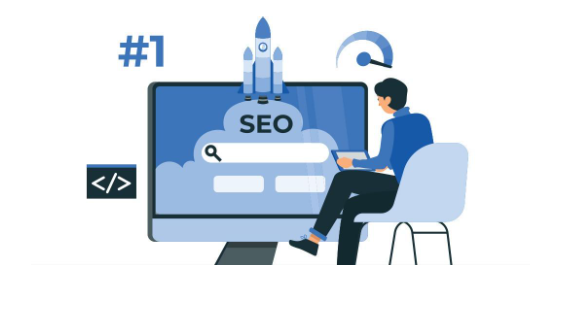The Dark Side of SEO: Unraveling Its Negative Aspects

A key component of Internet marketing is search engine optimization (SEO), which helps websites rise in the search engine results pages and become more visible. While it undoubtedly brings numerous benefits, another side of the coin is often overlooked: the negative aspects of SEO. In this blog, we will delve into SEO's darker side and explore its potential pitfalls and drawbacks.
Keyword Stuffing and Poor Content Quality:
One of the biggest issues in SEO is the temptation to resort to keyword stuffing, where websites overload their content with keywords in an attempt to manipulate search engine rankings. Unfortunately, this leads to poor content quality, unnatural writing, and a negative user experience. Websites prioritizing search engines over their human audience can harm their credibility and drive visitors away.
Black Hat SEO Tactics:
Black hat SEO refers to unethical practices that aim to deceive search engines and manipulate rankings. Some common black hat techniques include cloaking, hidden text, link spamming, and doorway pages. While these strategies could provide quick improvements, they run the risk of being severely penalized by search engines, including having their pages completely deleted from search results.
Fierce Competition and Oversaturation:
The popularity of SEO has led to fierce competition for top search engine rankings. In highly competitive industries, standing out among countless other websites vying for the same keywords becomes increasingly challenging. This oversaturation can lead to a diminished return on investment for SEO efforts and frustrate website owners who struggle to gain visibility.
Constant Algorithm Updates:
To offer consumers the most relevant and superior results, search engines like Google routinely alter their algorithms. While these updates are aimed at improving the user experience, they can wreak havoc on websites that rely heavily on specific SEO practices. Websites that once ranked well might plummet in rankings following an algorithm update, leading to unpredictable fluctuations in organic traffic.
Inaccurate or Misleading Information:
Some SEO techniques, such as creating clickbait titles and meta descriptions, can attract users to click on a page without delivering the promised content. This tactic might temporarily boost traffic, but it ultimately results in increased bounce rates and diminished trust among users who feel misled.
Negative Impact on User Experience:
When SEO becomes the primary focus, user experience can suffer. Websites may prioritize SEO elements, such as page loading speed, meta tags, and mobile-friendliness, but neglect other crucial aspects of a user-friendly website. A site that is challenging to navigate lacks valuable content or bombards visitors with ads that can leave a negative impression and harm its long-term growth.
While SEO is undeniably an essential tool for online success, it is crucial to recognize its negative sides. From keyword stuffing and black hat tactics to fierce competition and constant algorithm updates, SEO comes with its fair share of challenges. To harness the power of SEO effectively, website owners must strike a delicate balance between optimizing for search engines and prioritizing the needs and preferences of their human audience. By focusing on creating high-quality, relevant, and user-friendly content, websites can develop a strong basis for long-term expansion in the digital landscape.
Share on
Similar topics:
Similar blogs

SEO Evolution: Adapting to Search Engine Algorithms

SEO Decoded: From Algorithms to Page Rankings
Grow Your Referral and Organic Traffic
Choose a style, use sections to build pages and lastly, add your copy. It only takes a few clicks toget your site ready to go.